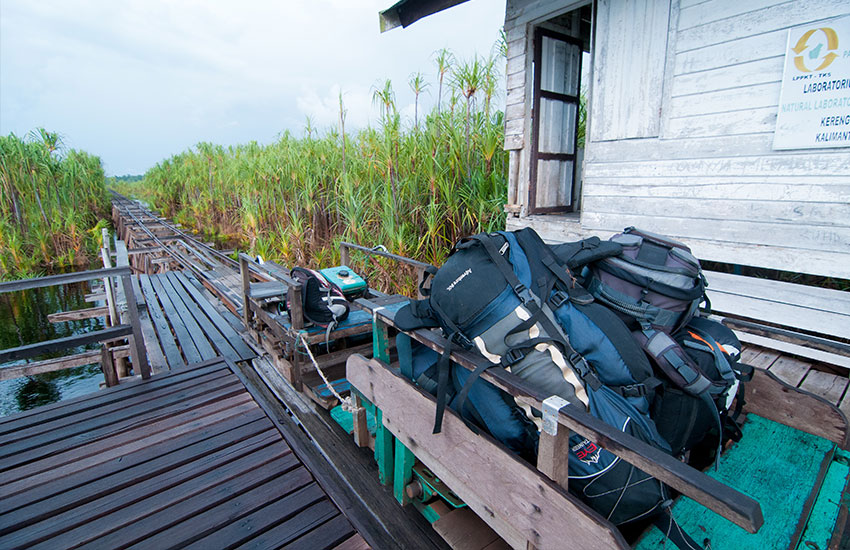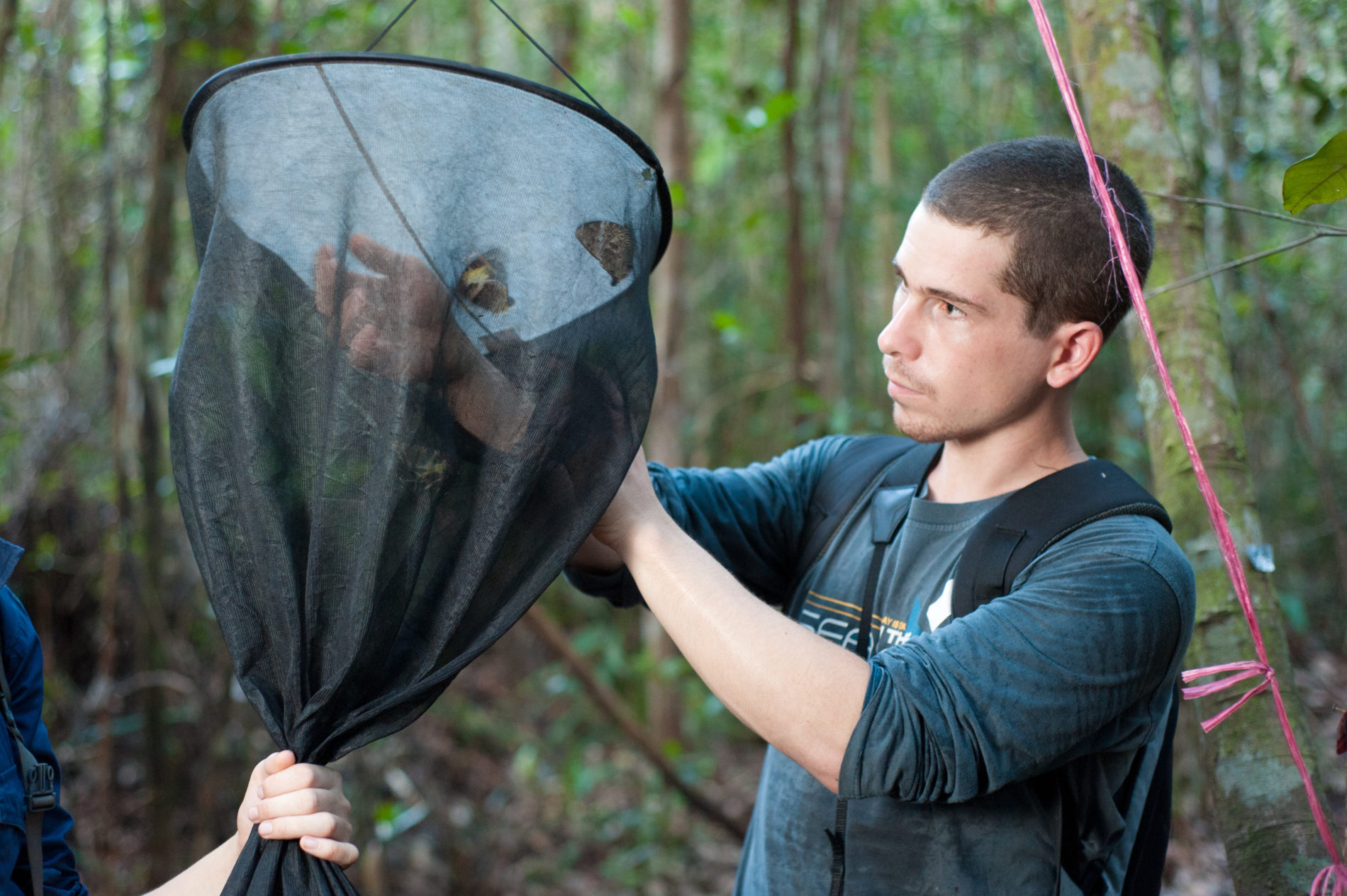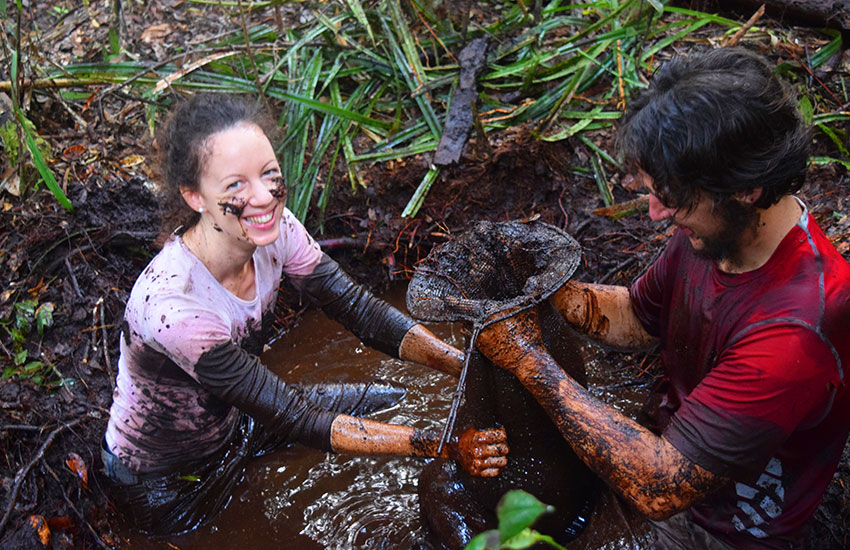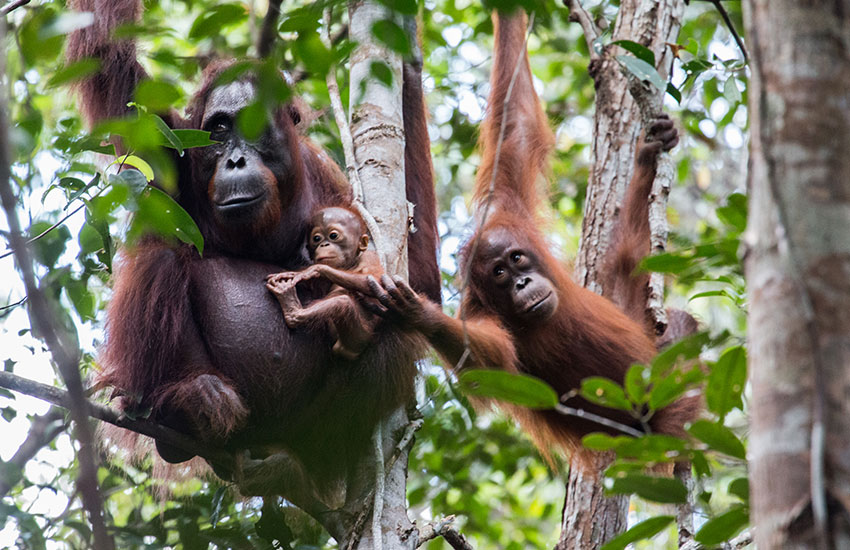 By Camille Burton
By Camille Burton
It’s 6:30am and the rustle of sleepy people and groans next to me confirms it’s time to get a move on to make sure I’m ready to pounce on breakfast before the good stuff disappears. Our beds, which look more like stretchers, are made from rice bags and are surprisingly comfy. I have yet to wake up uncomfortable or aching! First stop is the toilet which, before putting contact lenses in, is an uneasy walk along the raised wooden walk ways to a hut with squat toilets and buckets of water. Like all the ‘pondoks’ (tent rooms) it is made from blue tarp, an unusual and startling color amongst endless green and browns. Breakfast is announced and we rush to fill our stomachs with the staple; rice, noodles, green beans and prawn crackers. While our lecturer has his 4th cup of coffee I finish off getting ready, packing a lunch box with breakfast leftovers and collecting the favorite snack, peanuts. They take the longest to eat.
 Today, myself and two other Exeter students are with our lecturer Frank on a hunt to catch fish in the low pole peat swamp forest, which becomes known as the swamp of sadness. Other Exeter students and UMP local students are in various groups carrying out plots (intensive tree and habitat data), butterfly/ dragonfly/ orangutan nest surveys, camera trapping, acoustics or gibbon triangulation. We bid farewell to our peers and head off east to transect N6, 2km of low pole forest, the sample site of our survey today. Frank’s long legs makes it look easy as us shorties sink thigh deep into the brown swampy water, frequently slipping and falling over hidden stumps and roots.
Today, myself and two other Exeter students are with our lecturer Frank on a hunt to catch fish in the low pole peat swamp forest, which becomes known as the swamp of sadness. Other Exeter students and UMP local students are in various groups carrying out plots (intensive tree and habitat data), butterfly/ dragonfly/ orangutan nest surveys, camera trapping, acoustics or gibbon triangulation. We bid farewell to our peers and head off east to transect N6, 2km of low pole forest, the sample site of our survey today. Frank’s long legs makes it look easy as us shorties sink thigh deep into the brown swampy water, frequently slipping and falling over hidden stumps and roots.
The going is tough but it’s a laugh, especially when a mate and you decide to simultaneously go to the toilet in an impenetrable forest of Pandan, serrated palm fronds! The sampling consists of 20m of netting pools every 200m along the transect. We sit in the mud surrounded by vegetation to ID and measure the fish. We even catch a possible new species from the genus Paedocypris, the smallest fish on Earth. It is truly minute!

By the time we are walking back to camp I am both deliriously laughing with the other two and fed up of the mud, as I keep tripping over the bucket I am carrying. We almost reach camp when a male orangutan long call causes us to stop and look to the canopy in silence. Frank does an incredible impression of the long calls, and we get him to call back. Another reply nearby gets us excited and we slowly and quietly (hard in the thick undergrowth) creep towards the source of the sound. We are surprised to stumble across the acoustics teams and learn that Frank fooled them with his long call! However, all is exchanged in hushed voices as a big flanged male is in the trees nearby and is not happy, his anger being made known with aggressive calls and the breaking of branches.

The other team were lucky enough to see the orangutan sitting on the transect, a very rare sighting here as animals are unhabituated to humans. We let the orangutan be and make our way to camp only to come across another very lucky find! A leopard cat! Its eyes shining back at our torches the cat stays very still, staring at us, as if in a contest. We return to camp with big smiles on our faces, the tell-tale sign that someone has spotted some wildlife other than wood ants and we proceed to explain our story at the daily rapat (meeting). The late night mandi (river bath) has never been needed greater and I devour my food even quicker than usual.

